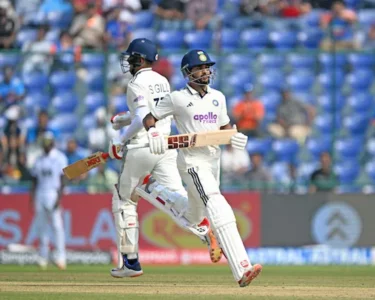The Pakistan Super League (PSL) is no stranger to controversies, but the recent dismissal of Fakhar Zaman has sparked a heated debate that refuses to die down. The incident has not only divided fans but also dragged legendary cricketer Shahid Afridi into the conversation. Afridi, known for his outspoken nature, openly criticized the umpiring standards in PSL and went a step further by drawing comparisons with the Indian Premier League (IPL). His remarks have fueled discussions on social media about fairness, technology, and integrity in cricket.
The Controversial Dismissal
During a crucial PSL match, Fakhar Zaman was given out in a decision that many believe should have gone in his favor. The dismissal came under unusual circumstances, raising questions about the umpire’s judgment. Fans argued that Fakhar’s dismissal was controversial because the replay showed room for doubt, yet the benefit of the doubt was not awarded to the batter.
This incident quickly caught the attention of analysts and former cricketers, but Shahid Afridi’s reaction stood out. Afridi not only criticized the umpiring but also connected it with comparisons to IPL, a move that instantly grabbed headlines.
Shahid Afridi’s Reaction
Afridi has always been a strong voice for fairness in cricket. In his statement, he questioned the integrity of umpiring decisions in the PSL and expressed disappointment over the way Fakhar Zaman’s dismissal was handled.
He further highlighted how the IPL manages such scenarios differently, ensuring players are not hard done by questionable calls. By dragging IPL into the controversy, Afridi reignited the never-ending debate between PSL and IPL standards.
Key Points From Afridi’s Remarks:
- Questioned Umpire Integrity: Afridi said umpires need to be more professional and consistent.
- IPL Comparison: He argued that in IPL, technology and decision-making are sharper, reducing such controversies.
- Fairness in Cricket: Afridi emphasized that players like Fakhar Zaman deserve fair decisions, especially in big matches.
- PSL Growth Concern: He warned that repeated controversies could damage the reputation of PSL internationally.
Fans React on Social Media
Afridi’s remarks went viral on Twitter, Facebook, and Instagram, with fans expressing mixed reactions. While many supported his stance, saying that umpiring in PSL has been inconsistent, others believed Afridi’s comparison with IPL was unnecessary.
Supporters of Afridi argued that his comments were justified because quality umpiring is crucial for PSL’s credibility. Meanwhile, critics felt dragging IPL into the debate was a way to sensationalize the issue further.
Why Umpiring Standards Matter
Umpiring controversies are not new in cricket, but in modern times, with the availability of advanced technology, fans expect more accurate decisions. PSL, being Pakistan’s biggest cricketing event, carries the responsibility of maintaining high standards. Mistakes like Fakhar Zaman’s run-out can hurt the league’s image.
Afridi’s comments reflect a growing demand for better use of technology and trained officials in PSL. If PSL wants to compete with IPL and other global leagues, ensuring error-free umpiring should be a top priority.
The Way Forward for PSL
To avoid similar controversies in the future, PSL organizers need to take proactive measures:
- Better Use of DRS: Ensure every decision is reviewed thoroughly using available technology.
- Training for Umpires: Conduct regular workshops to improve decision-making under pressure.
- Transparent Communication: Share clear explanations with players and fans after controversial calls.
- Independent Review Panel: Introduce a system where questionable umpiring can be reviewed post-match.
Conclusion
The Fakhar Zaman run-out controversy has once again highlighted the challenges PSL faces in terms of umpiring consistency. Shahid Afridi’s strong remarks have pushed the discussion into the spotlight, with the IPL comparison adding fuel to the fire. While opinions may differ, one thing is clear—PSL must improve its standards to match global expectations.







